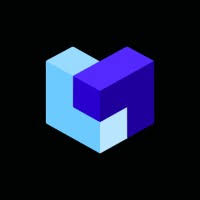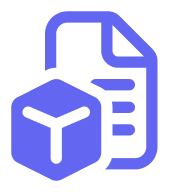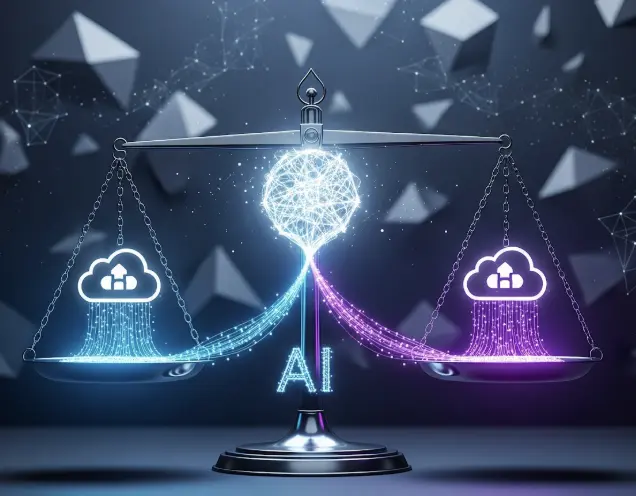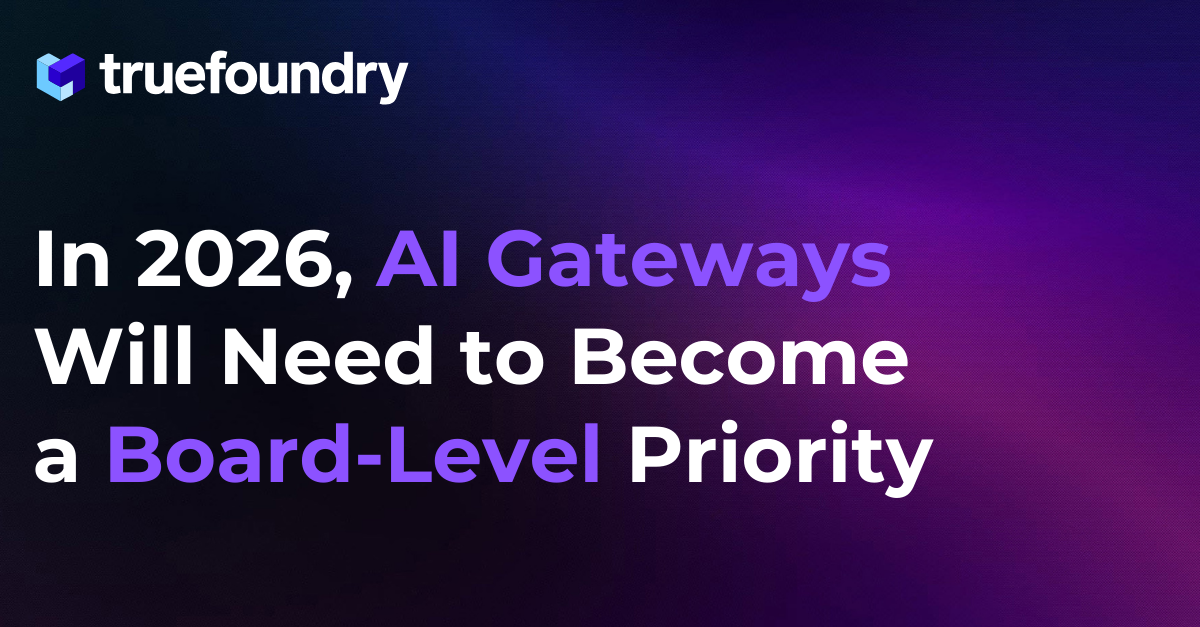Best MCP Automation Platforms for Enterprise
While organizations have successfully implemented AI in isolated use cases, the real challenge lies in creating connected, context-aware AI systems that can seamlessly interact with existing business tools and data sources. Traditional approaches require building custom integrations for every AI model and business system combination, creating what's known as the "N×M problem" where complexity grows exponentially with each new integration.
Model Context Protocol (MCP) automation platforms have emerged as the solution to this integration nightmare. By providing a standardized, open protocol for AI models to connect with external tools and data sources, MCP platforms enable enterprises to build scalable, maintainable AI ecosystems without the burden of custom integrations. These platforms transform AI from isolated applications into integrated business capabilities that can access real-time data, trigger actions, and maintain context across complex workflows.
What Is MCP Automation?
Model Context Protocol (MCP) automation represents a paradigm shift in how AI systems interact with the broader enterprise ecosystem. At its core, MCP is an open standard developed by Anthropic that defines how AI models communicate with external tools, data sources, and services through a unified JSON-RPC interface.
Unlike traditional API integrations that require custom code for each connection, MCP provides three standardized primitives that enable AI models to interact with external systems.
- Tools are executable functions that allow AI models to take actions like querying databases, calling APIs, or updating records.
- Resources provide structured data or content that enriches the model's context, such as file contents, database schemas, or configuration data.
- Prompts serve as interactive templates that guide AI interactions and can be dynamically discovered and utilized.
The automation aspect of MCP platforms extends far beyond simple connectivity. Modern MCP automation platforms provide intelligent orchestration capabilities that can dynamically discover available tools, enforce security policies, manage authentication, and provide comprehensive observability across all AI interactions. This means enterprises can deploy AI agents that automatically adapt to new tools and data sources without requiring code changes or manual configuration.
MCP's client-server architecture enables unprecedented scalability and flexibility. MCP clients (typically AI applications) can connect to multiple MCP servers simultaneously, each providing access to different business systems or data sources. This architecture eliminates the traditional point-to-point integration model, replacing it with a hub-and-spoke approach that dramatically reduces complexity and maintenance overhead.

This diagram illustrates the fundamental advantage of MCP architecture. Traditional approaches require N×M custom integrations between each AI application and business system, creating exponential complexity. MCP's hub-and-spoke model centralizes these connections through a single gateway, dramatically reducing integration overhead.
The protocol's AI-native design sets it apart from traditional integration approaches. While conventional APIs were optimized for static, predefined interactions, MCP supports dynamic capability discovery, allowing AI agents to learn about available tools at runtime and adapt their behavior accordingly. This enables truly autonomous AI workflows that can evolve as business requirements change.
Why Enterprises Need MCP Automation Platforms
The enterprise imperative for MCP automation platforms stems from fundamental challenges that traditional integration approaches cannot effectively address at scale.
- Integration Complexity and Technical Debt represent the primary pain point driving MCP adoption. Enterprises typically operate dozens of business systems—from CRMs and ERPs to data warehouses and specialized tools. Traditional approaches require building and maintaining separate integrations for each AI use case and system combination, creating exponential complexity. A recent study found that 70-95% of AI projects fail to launch due to integration bottlenecks, with teams spending more time on custom integration code than on actual AI functionality.
- Governance and Security Requirements become increasingly critical as AI systems access sensitive business data and perform actions with real-world consequences. The MCP automation platforms provide centralized policy enforcement, audit trails, and access controls through an enterprise MCP server, enabling organizations to deploy AI safely while meeting regulatory requirements. This includes role-based access control (RBAC), comprehensive logging of all AI actions, and the ability to enforce data privacy policies at the protocol level.
- Scalability and Performance Challenges emerge when enterprises move beyond pilot projects to production deployments. Traditional point-to-point integrations become bottlenecks as request volumes increase and new use cases are added. MCP automation platforms provide elastic scaling, load balancing, and resource optimization that enable enterprises to handle thousands of concurrent AI interactions with predictable performance. TrueFoundry's enterprise implementation, for example, demonstrates these capabilities in action. Their MCP Server Enterprise Implementation Guide shows how organizations can deploy production-ready MCP servers that deliver sub-10ms latency while handling 350+ requests per second on a single vCPU. This performance advantage enables real-time AI applications and ensures scalability as enterprise usage grows.
- Developer Productivity and Time-to-Market concerns drive organizations toward standardized approaches. With MCP automation platforms, new AI use cases can be deployed in hours rather than weeks. Developers can leverage existing MCP servers for common business systems, focusing their effort on AI logic rather than integration code. This acceleration is particularly valuable in competitive markets where time-to-market can determine success or failure.
- Cost Optimization and Resource Efficiency become critical factors as AI usage scales across the enterprise. MCP automation platforms provide unified visibility into AI resource consumption, intelligent routing to optimize costs, and automated scaling that prevents over-provisioning. Organizations report significant cost reductions through better resource utilization and reduced development overhead when adopting MCP platforms.
Evaluation Criteria for MCP Automation Platforms
Selecting the right MCP automation platform requires a systematic evaluation framework that balances technical capabilities with enterprise requirements and strategic objectives.
- Technical Architecture and Standards Compliance form the foundation of any MCP platform evaluation. Look for platforms that fully implement the MCP specification with support for all three primitives (tools, resources, prompts) and multiple transport protocols (stdio, HTTP, SSE). The platform should demonstrate robust client-server architecture with support for both local and remote MCP servers, dynamic capability discovery, and efficient message handling. Performance characteristics are crucial—evaluate platforms based on latency, throughput, and resource efficiency under realistic load conditions.
- Enterprise Security and Governance Features distinguish production-ready platforms from development tools. Essential capabilities include OAuth 2.0 and OIDC integration with enterprise identity providers, granular role-based access control (RBAC), and comprehensive audit logging that tracks all AI interactions with immutable records. Look for platforms that support multi-tenancy with logical isolation, enabling different business units or environments to operate independently while maintaining centralized governance.
- Integration Ecosystem and Extensibility determine how well the platform fits into existing enterprise infrastructure. Evaluate the breadth of pre-built MCP servers for popular business systems like Slack, GitHub, databases, and cloud services. The platform should provide flexible deployment options supporting cloud, on-premises, and hybrid environments. API-first architecture enables custom integrations, while comprehensive SDK support across multiple programming languages reduces development friction.
- Observability and Operational Excellence capabilities ensure the platform can be managed effectively at enterprise scale. This includes real-time monitoring and alerting, distributed tracing for complex workflows, performance analytics and optimization recommendations, and comprehensive cost visibility and management tools. The platform should integrate with existing enterprise monitoring tools like Prometheus, Grafana, and Datadog.
- Vendor Ecosystem and Support considerations include the maturity of the platform provider, availability of professional services and support, community ecosystem and documentation quality, and long-term product roadmap alignment with enterprise needs. Evaluate the vendor's experience with enterprise deployments and their ability to provide the level of support required for mission-critical AI applications.
- Scalability and Performance requirements must align with current and projected enterprise needs. This includes horizontal scaling capabilities, auto-scaling based on demand, geographic distribution and edge deployment options, and disaster recovery and high availability features. The platform should demonstrate proven performance at enterprise scale with appropriate SLA guarantees.
Best MCP Automation Platforms for Enterprise in 2025
1. TrueFoundry
TrueFoundry stands as the leading purpose-built MCP automation platform, specifically designed to address the complex requirements of enterprise AI deployments at scale. What distinguishes TrueFoundry is its comprehensive approach to MCP orchestration, combining a unified MCP Gateway with enterprise-grade governance, security, and observability in a single, cohesive platform.
The platform's MCP Gateway serves as a centralized control plane for AI-tool interactions. In more advanced architectures, this gateway can operate as an MCP hub, orchestrating discovery, routing, and governance across distributed MCP servers. For organizations looking to deploy an enterprise AI gateway with MCP, this unified layer eliminates fragmented integrations while ensuring centralized governance, authentication, and observability across all AI workloads.This eliminates the complexity of managing multiple point-to-point integrations while providing dynamic tool discovery, unified authentication, and comprehensive policy enforcement across all MCP interactions. TrueFoundry's implementation extends the open MCP standard with enterprise capabilities including granular RBAC, immutable audit logging, and real-time compliance monitoring.

Performance leadership is a key differentiator, with TrueFoundry delivering sub-10ms latency and handling 350+ requests per second on a single vCPU. This performance advantage enables real-time AI applications and ensures scalability as enterprise usage grows. The platform achieves this through optimized message handling, intelligent caching, and efficient resource management.
Enterprise integration capabilities are comprehensive, featuring pre-built MCP servers for popular business tools like Slack, Confluence, Sentry, and Datadog. The platform also supports "bring your own MCP server" functionality, enabling organizations to quickly onboard custom or proprietary services without extensive development work. Security features include federated identity through enterprise providers (Okta, Azure AD, Google Workspace), OAuth 2.0 with dynamic token management, and centralized policy enforcement.
The observability and monitoring capabilities provide complete visibility into MCP interactions, including structured telemetry for latency, error rates, usage patterns, and cost tracking filtered by team, user, or business unit. This enables data-driven optimization and troubleshooting across the entire MCP ecosystem.
2. GitHub Copilot
GitHub Copilot's MCP integration represents a breakthrough in developer productivity, enabling AI-powered development workflows that seamlessly connect with enterprise development infrastructure. The platform provides native MCP server support that extends Copilot's capabilities beyond code generation to include repository management, issue tracking, and end-to-end development workflow automation.
Key enterprise features include comprehensive policy controls that allow organizations to enable or disable MCP functionality at the enterprise level, ensuring compliance with security requirements. The platform supports both OAuth authentication and personal access token (PAT) configurations, providing flexibility for different security models and enterprise identity management systems.
Development workflow integration is seamless, enabling developers to create issues, manage pull requests, and access repository context directly from the IDE without switching tools. This integration reduces development friction and accelerates the software delivery lifecycle. The platform's agent mode can automatically triage issues, implement code changes, and create pull requests based on natural language instructions.
Enterprise deployment is straightforward with support for both remote and local MCP servers, enabling organizations to maintain control over sensitive development environments. The platform integrates with existing GitHub enterprise features including advanced security scanning, compliance reporting, and audit logging.
3. Microsoft Visual Studio
Visual Studio's MCP implementation provides deep IDE integration that enhances GitHub Copilot's agent mode with custom tool capabilities, making it particularly valuable for Microsoft-centric enterprise environments. The platform supports the full range of MCP capabilities including tools, prompts, resources, and authentication.
Enterprise management features include centralized configuration through group policies, enabling IT administrators to control MCP availability across the organization. The platform supports both local and remote MCP servers with flexible authentication options including OAuth providers for enterprise identity integration.
Technical capabilities are robust, supporting stdio, HTTP, and server-sent events (SSE) transport protocols for maximum compatibility with different MCP server implementations. The platform provides comprehensive tool permission management and dynamic tool discovery, enabling AI agents to adapt to available capabilities automatically.
Integration with Microsoft ecosystem provides unique advantages for enterprises already invested in Microsoft technologies, including seamless integration with Azure DevOps, Microsoft Teams, and Office 365. This tight integration enables comprehensive workflow automation across the entire Microsoft enterprise stack.
4. AWS SageMaker
Amazon SageMaker's MCP integration leverages AWS's mature machine learning infrastructure to provide scalable MCP automation capabilities for enterprises heavily invested in the AWS ecosystem. The platform supports FastMCP for rapid prototyping and FastAPI for complex routing scenarios, enabling flexible deployment architectures.
AWS ecosystem integration is comprehensive, providing seamless connectivity with AWS services including IAM for security, CloudWatch for monitoring, and Lambda for serverless execution. This deep integration enables enterprises to leverage existing AWS investments while adding MCP capabilities to their AI workflows.
Enterprise features include IAM-based access controls, comprehensive audit logging through CloudTrail, and integration with AWS Config for compliance monitoring. The platform supports multi-model endpoints and inference components that optimize resource utilization and reduce costs.
Scalability and reliability are hallmarks of the AWS platform, with auto-scaling capabilities, multi-region deployment options, and enterprise-grade SLA guarantees. However, organizations should consider potential vendor lock-in and the need for AWS-specific expertise when evaluating this option.
5. Azure
Azure Machine Learning provides comprehensive MLOps capabilities with growing MCP integration support, particularly valuable for organizations in Microsoft-centric environments. The platform offers unique cost advantages by charging only for underlying compute, storage, and networking without additional platform licensing fees.
Enterprise strengths include native CI/CD integration with Azure DevOps and GitHub Actions, hybrid cloud support through Azure Arc, and responsible AI capabilities with bias detection and explainability features. The platform's integration with the broader Microsoft ecosystem provides workflow advantages for Office 365 and Teams-based organizations.
Security and compliance features are enterprise-grade, with comprehensive governance tools, role-based access control, and compliance certifications for major regulatory frameworks. The platform also provides strong data residency controls for organizations with strict data sovereignty requirements.
6. Google Cloud Vertex AI
Google Cloud's Vertex AI offers advanced AI and ML capabilities with emerging MCP integration support, particularly strong for organizations focused on data analytics and machine learning innovation. The platform provides end-to-end ML lifecycle management with AutoML, custom training, and MLOps pipelines.
Data analytics integration is exceptional, with native BigQuery connectivity enabling AI models to access and analyze massive datasets in real-time. The platform's Kubernetes Engine integration provides container-native deployment options that many enterprises prefer for scalability and portability.
Innovation capabilities include access to Google's latest AI research and foundation models, Tensor Processing Units (TPUs) for high-performance training, and cutting-edge generative AI tools through Generative AI Studio. The platform is particularly strong for organizations requiring advanced AI capabilities and open-source tool integration.
7. Zapier
Zapier's MCP server provides no-code automation capabilities with access to over 6,000 integrated applications, making it valuable for business users and rapid prototyping scenarios. The platform enables AI models to trigger workflows and access data from popular business applications without custom development.
Enterprise considerations include the platform's cloud-hosted nature and pre-built connectors for popular SaaS applications. While not purpose-built for enterprise MCP deployments, Zapier can serve as a valuable component in broader MCP automation strategies, particularly for connecting AI workflows with business process automation.
8. K2view
K2view's MCP server specializes in real-time enterprise data delivery with entity-based data virtualization capabilities. The platform provides granular data privacy and security controls while enabling low-latency access to operational data across multiple enterprise systems.
Enterprise features include built-in data transformation capabilities, comprehensive data governance, and support for both on-premises and cloud deployments. The platform is particularly valuable for organizations requiring real-time access to complex, multi-source enterprise data while maintaining strict security and privacy controls.
9. Vectara
Vectara's MCP server focuses on semantic search and retrieval-augmented generation (RAG) capabilities, providing relevance-ranked context delivery to AI models. The platform includes automated embedding generation, multi-language query support, and API-first architecture for flexible integration.
Technical strengths include custom and domain-specific embeddings, advanced semantic search capabilities, and comprehensive RAG framework optimization. The platform is particularly valuable for enterprises requiring sophisticated information retrieval and knowledge management capabilities in their AI workflows.
How to Choose the Right MCP Automation Platform
Selecting the optimal MCP automation platform requires a structured decision-making process that aligns technical capabilities with business objectives and organizational constraints.
- Begin with a comprehensive requirements assessment that includes current AI initiatives, existing technology infrastructure, security and compliance requirements, and projected scale of AI deployment. Engage stakeholders across IT, security, business units, and executive leadership to ensure all perspectives are considered in the evaluation process.
- Develop a weighted scoring framework that reflects your organization's priorities. Technical capabilities might carry higher weight for organizations with complex AI workloads, while security and compliance features take precedence in regulated industries. Integration with existing systems should be weighted heavily if your organization has significant investments in specific technology stacks.
- Implement a structured pilot program to validate platform capabilities in realistic scenarios. Focus on a representative use case that demonstrates key requirements including integration complexity, security controls, performance characteristics, and operational management. This hands-on evaluation reveals gaps between vendor claims and actual performance while providing valuable experience for your team.
- Consider total cost of ownership beyond initial platform costs. Factor in implementation services, training requirements, ongoing support costs, and opportunity costs of delayed AI deployments. Some platforms with higher upfront costs may deliver better long-term value through reduced operational overhead and faster time-to-market.
- Evaluate vendor ecosystem and long-term viability including the platform provider's financial stability, product roadmap alignment with your strategic direction, quality of support and professional services, and strength of the developer and partner ecosystem. Consider the vendor's track record with enterprise deployments similar to your requirements.
Conclusion
The enterprise AI landscape in 2025 demands sophisticated infrastructure that enables connected, context-aware AI systems while maintaining the security, governance, and operational excellence that business leaders require. Model Context Protocol automation platforms have emerged as the critical infrastructure layer that transforms AI from isolated applications into integrated business capabilities.
TrueFoundry leads the enterprise MCP market with its purpose-built platform combining technical excellence, comprehensive enterprise features, and proven performance at scale. However, the right choice depends on your specific context—GitHub Copilot + MCP for development-centric organizations, Microsoft Visual Studio + MCP for Microsoft ecosystem enterprises, or AWS/Azure/GCP solutions for cloud-native deployments.
The key to success lies in taking a systematic approach to platform evaluation that prioritizes capabilities aligned with your business objectives rather than following technology trends. Organizations that invest in proper MCP automation infrastructure today will be positioned to capitalize on the AI opportunities of tomorrow, while those that delay risk falling behind in an increasingly AI-driven business landscape.
The future belongs to enterprises that can deploy AI systematically, safely, and at scale. MCP automation platforms provide the foundation to make that future a reality, enabling the next generation of intelligent, connected business capabilities.
Built for Speed: ~10ms Latency, Even Under Load
Blazingly fast way to build, track and deploy your models!
- Handles 350+ RPS on just 1 vCPU — no tuning needed
- Production-ready with full enterprise support
TrueFoundry AI Gateway delivers ~3–4 ms latency, handles 350+ RPS on 1 vCPU, scales horizontally with ease, and is production-ready, while LiteLLM suffers from high latency, struggles beyond moderate RPS, lacks built-in scaling, and is best for light or prototype workloads.


















